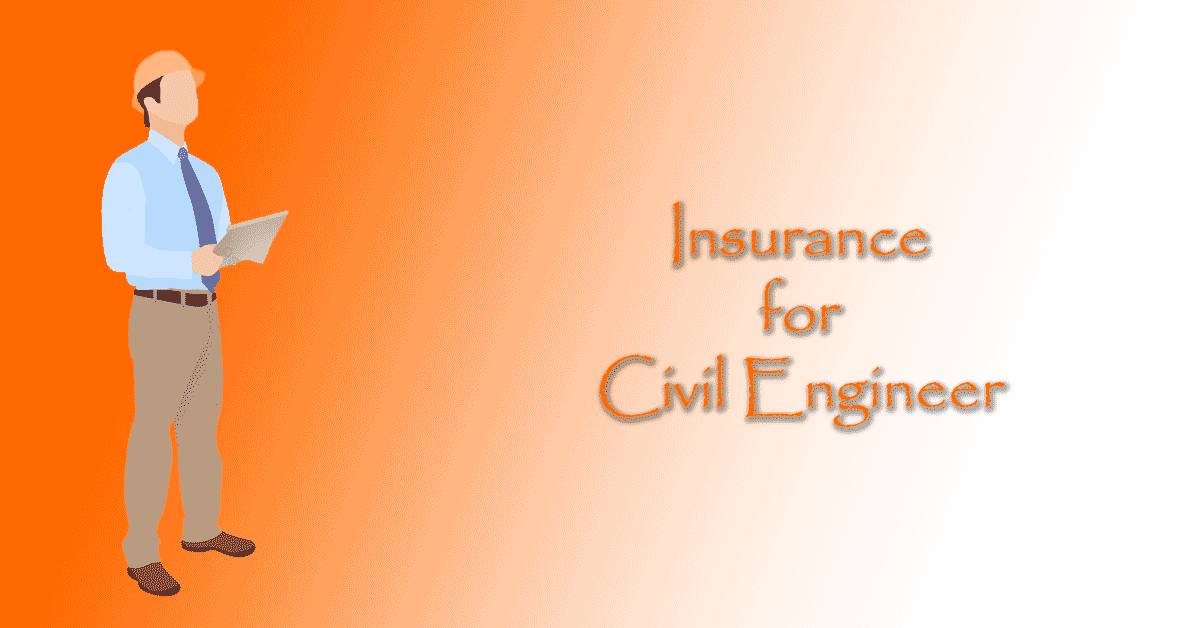In the dynamic world of civil engineering, professionals face numerous challenges ranging from project complexities to regulatory compliance. Amidst these challenges lies an often overlooked aspect: insurance. Civil engineers play a pivotal role in designing, constructing, and maintaining infrastructure, making them susceptible to various risks. Therefore, having comprehensive insurance coverage tailored to their specific needs is crucial. In this article, we delve into the significance of insurance for civil engineers, exploring the types of coverage they require and how it safeguards their projects, reputation, and financial stability.
Why Insurance Matters for Civil Engineers
Civil engineering projects entail substantial investments of time, money, and resources. Despite meticulous planning and execution, unforeseen events such as natural disasters, design flaws, or third-party claims can disrupt operations and incur significant financial losses. Insurance acts as a safety net, providing financial protection and mitigating risks associated with these uncertainties. Here are key reasons why insurance is indispensable for civil engineers:
- Risk Mitigation: Civil engineering projects inherently involve various risks, including construction defects, property damage, bodily injury, and professional liabilities. Insurance policies such as professional liability insurance, general liability insurance, and builder’s risk insurance shield engineers from these risks, covering legal expenses, settlements, and damages in the event of lawsuits or claims.
- Compliance Requirements: Many jurisdictions mandate civil engineers to carry specific types of insurance as a prerequisite for obtaining licenses or permits. Failing to comply with these requirements can result in legal penalties, project delays, and reputational damage. By maintaining the necessary insurance coverage, engineers ensure regulatory compliance and uphold professional integrity.
- Client Expectations: Clients often expect civil engineers to have adequate insurance coverage to safeguard their interests and investments. Demonstrating proof of insurance enhances credibility and instills confidence in clients, fostering stronger client relationships and facilitating business growth. Moreover, insurance coverage can be a deciding factor for clients when selecting engineering firms for their projects.
Types of Insurance for Civil Engineers
Understanding the diverse risks faced by civil engineers is essential for selecting appropriate insurance coverage. Here are the primary types of insurance policies tailored to address the specific needs of civil engineering professionals:
- Professional Liability Insurance: Also known as errors and omissions (E&O) insurance, professional liability insurance protects civil engineers against claims arising from professional negligence, errors, or omissions in their services. This coverage encompasses legal defense costs, settlements, and judgments associated with alleged mistakes in design, consultation, or project management.
- General Liability Insurance: General liability insurance provides broad protection against third-party claims for bodily injury, property damage, or advertising injury caused by the engineer’s business operations. It covers medical expenses, property repairs, and legal fees resulting from accidents or incidents occurring on project sites or premises.
- Builder’s Risk Insurance or Contractor’s All Risk (CAR) Insurance: CAR insurance is designed to protect civil engineers and contractors against risks associated with construction projects. This comprehensive policy covers loss or damage to the project works, materials, and equipment on-site, including during transit. CAR insurance typically includes coverage for unforeseen events such as fire, theft, vandalism, and accidental damage, providing financial protection throughout the construction process. Please note that this doesn’t cover design defects, even if the accident or damage occur during the construction due to the same.
- Workers’ Compensation Insurance: Workers’ compensation insurance is essential for civil engineering firms with employees. It provides coverage for medical expenses, lost wages, and disability benefits to workers who sustain job-related injuries or illnesses. By carrying workers’ compensation insurance, engineering firms comply with legal requirements and uphold their duty of care towards employees.
- Cyber Liability Insurance: In an increasingly digitized environment, cyber liability insurance is becoming indispensable for civil engineering firms. This coverage protects against data breaches, cyber-attacks, and privacy violations, mitigating financial losses and reputational damage resulting from cyber incidents.
- Umbrella Insurance: Umbrella insurance serves as an additional layer of liability protection beyond the limits of primary insurance policies. It provides extended coverage for catastrophic events or situations where claims exceed the limits of underlying insurance policies. Civil engineers can benefit from umbrella insurance to enhance their overall risk management strategy.
Conclusion
Insurance plays a critical role in safeguarding civil engineers against a myriad of risks inherent in their profession. By investing in comprehensive insurance coverage, engineers protect their projects, reputation, and financial well-being. Understanding the types of insurance tailored to their specific needs empowers civil engineers to make informed decisions and mitigate potential liabilities effectively. As the civil engineering landscape continues to evolve, prioritizing insurance becomes imperative for professionals seeking to thrive in a competitive industry.
Through proactive risk management and strategic insurance planning, civil engineers can navigate challenges with confidence, secure in the knowledge that they have the necessary protection in place to mitigate potential risks and ensure the success of their projects.

